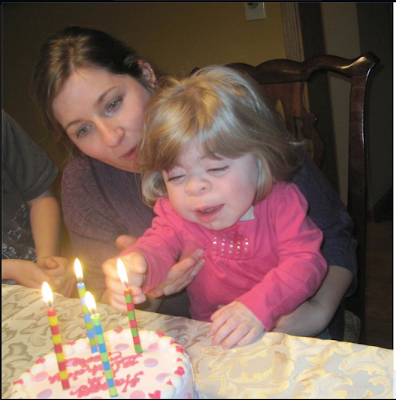Growing up in Hong Kong, the Moon Festival was one of my favourite events. I loved that it was a nighttime activity designed to include children. I remember walking at night with my candle lit lantern. All the kids held lanterns. In fact the streets were all warmly lit by the glow of candle lights. To me, it had a similar feeling to Halloween. It was the one night for kids to roam the streets after dark. Rather than checking out other kids’ costumes, we admired each other’s lanterns. And instead of candy we ate moon cakes.
I just had to bring Mila and Niko to this Moon Festival. The streets were jammed packed with people. I don't remember the crowds being this dense in Hong Kong.
When we stopped to get paper lanterns for the girls, I saw two women in their 60s hovering over Niko in the stroller. Chinese people are not shy about invading your space, and they don’t hide it if they are curious about you. If anyone has ever taken the #30 Stockton bus here in San Francisco, you would know what I’m talking about.
These women were speaking in a Chinese dialect that I don’t really understand. I could only understand a few words.
“Does she have [word I don’t understand]?” one of them asked.
“Yeah I think so, she’s got [word I don’t understand]” the second lady said.
They continued to talk about Niko, but I was both furious and embarrassed about this [word I don’t understand] that everything else they said became jumbled to me.
I cut in, “What are you saying?” I spoke to them in Cantonese. They switched to Cantonese to respond to me (most speakers of neighboring dialects can easily speak Cantonese).
“Oh is she yours?” asked lady one.
“Yes,” I said.
“She looks… nothing like you. She’s so pale. And her hair is so light.” said lady two.
“Well the father is Caucasian.” I said.
“Oh so she looks like the father,” said lady one.
“No she doesn’t look like him either.” I said.
They continued to reprimand me for not dressing her warm enough. They made me take out a blanket to cover her. They grabbed Niko’s hands and feet and said that they were cold.
“How old is she?” asked lady one.
I hesitated for a moment, “She’s 4 months.”
“What?! Why is she so small? The father is tall. She’s the size of a new born. What’s wrong with her?” Blah blah blah blah blah…..
“Mind your own business!” I barked at them and walked away.
I should not have cared. That [word I don’t understand] should not have stung as it did. Really. I don’t even know what that word means. But I let it bother me. I cried about it later.
People will always ask how old my baby is. It’s involuntary. When you see a baby, that question just bubbles up from somewhere in your intestine, travels up your esophagus, tickles the back of your throat and before you realize it, it just comes out like a burp. “How old?” I ask it too.
Kiril tells me to just say that she’s 2 months or something. But I can’t. I can’t lie. To lie about her age is to deny Niko of the progress that she’s already made so far. To lie is to admit that I’m ashamed. And I’m not ashamed... Not anymore. I struggled with shame for a while to be honest. But now that I’ve had more time to digest this, and more time to know Niko, I’m proud of her. I’m proud that she’s living through this horrible condition. I’m proud that despite all her setbacks she is so brave and smiles at the world. So I won’t lie.
I just have to figure out how to deal with questions. I don’t want to end up snapping at people. “How old is your baby?” It’s such a harmless question. And yet when someone asks right now, I want to spin around and say, “Mind your fucking business!” And then I would look C-R-A-Z-Y!
 |
| 4.5 months, small but just the right size for me. |













